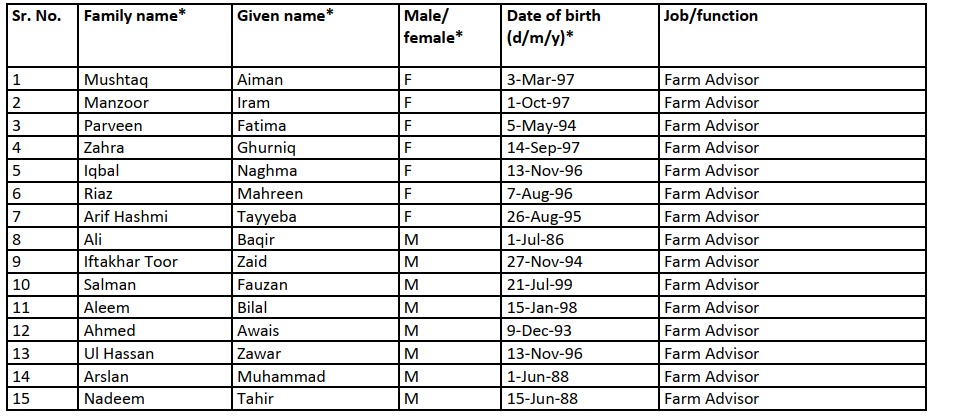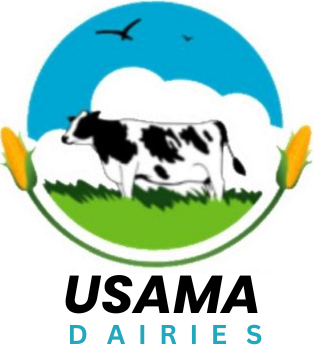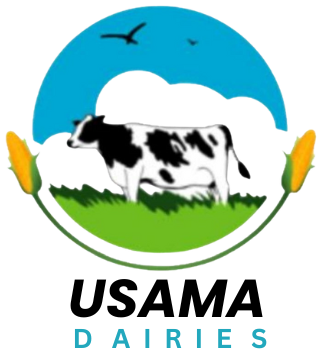Report on a Tailor Made Training for employees of PLYC
Course Title:
Value addition of milk to develop dairy processing capacity and rural entrepreneurship
December 2019-March 2020
AERES University of Applied Sciences, Dronten, Netherland

Introduction
During May 2019 Aeres University of Applied Sciences and PLYC received the result of the tailor made training (TMT) tender published by NUFFIC in February 2019. After preparing the joint proposal during February and March 2019 the approval was given.
In the proposal PLYC indicated that their extension workers needed capacity development in order to develop the dairy value chain in their working area. For more details see also the original TMT Proposal.
During July 2019 the planning for implementation was made and it was decided to execute the main part of the training during December 2019. The final follow up and assessment week was scheduled for March 2020. Due to the Corona Virus Outbreak the assessment week had to be postponed. After deliberations with the coordinators it was decided to implement the assessment week during July 2020
Training program
Based on the identified capacity gaps the following TMT training modules were implemented:
A. Dairy Value Chain Development
In this module the dairy value chains in the working area of PLYC would be identified and analyzed including the role of different actors, service providers, government and regulatory authorities as well as the role of women. Gender participation and climate change are recognized as important issues for development.
The role PLYC could play in the local dairy value chains will be identified and compared with what the PLYC is doing at the moment. This should lead to ideas how PLYC can improve its functioning. For achieving the fore-mentioned the following topics will be part of this Module:
Methods to analyze Dairy Value Chains (DVC’s), assessing dairy value chains in the working area of PLYC, meeting with stakeholders in the working area of PLYC, finding solutions to constraints and developing plans for improvement; Upgrading model for competitiveness from farm to Marketing
-Gender and youth participation in local DVC’s
-Hygienic milk production, transport, storage, management of milk collection centers
-Quality control in DVC’s, European standards and options given the situation in the working area of PLYC
-Milk processing, options for value addition for small holder dairy farms, quality control, marketing and sales
-Training strategies for local small holder dairy farms
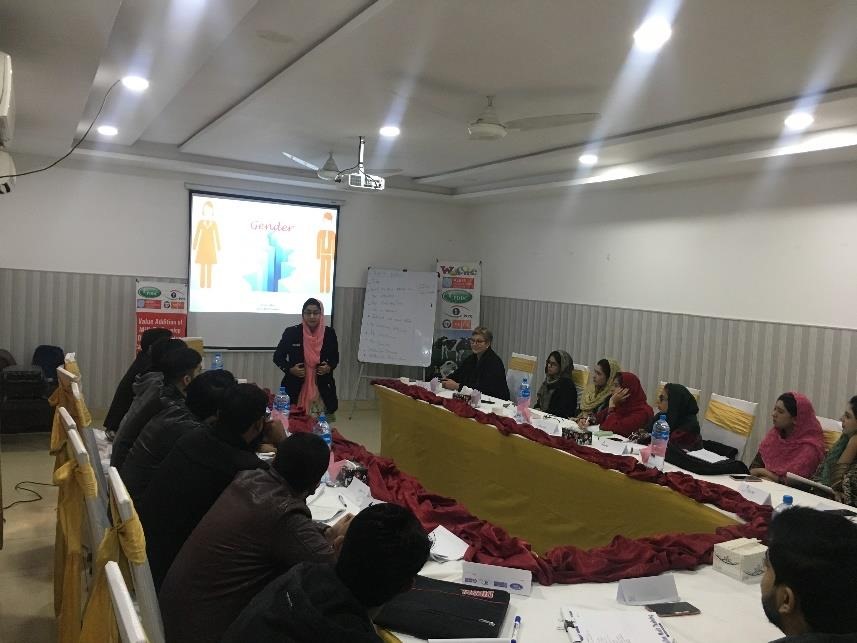

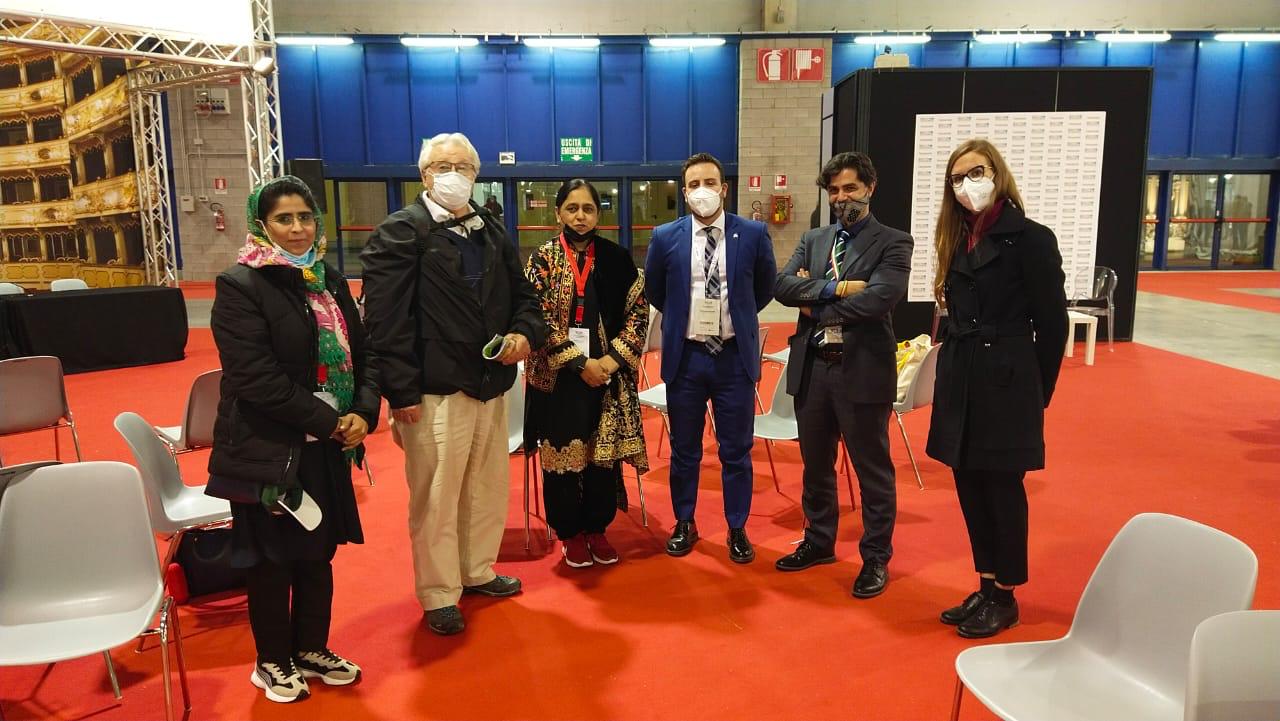
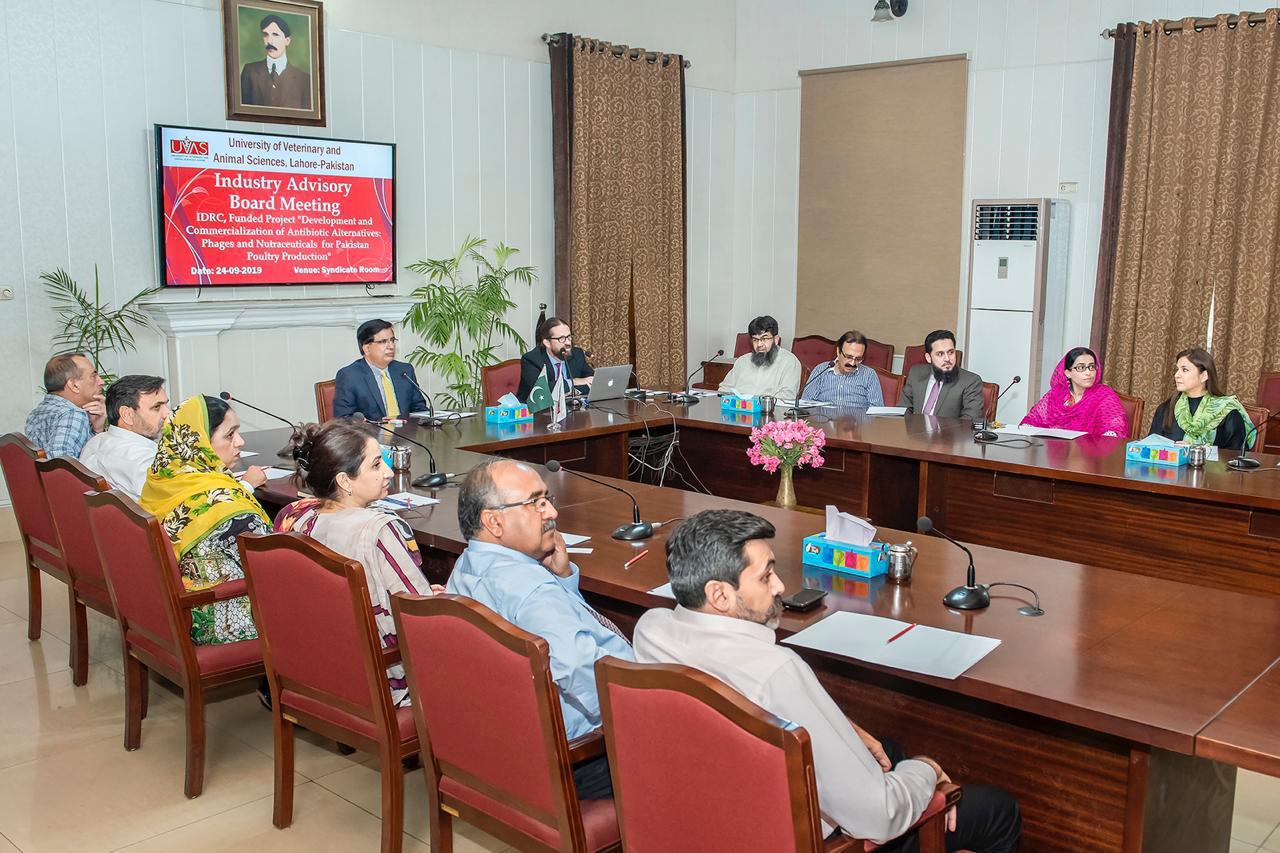
B. Dairy Farm Management and economics
In this Module the focus will lie on the main issues dairy farmers in the working area of PLYC are facing which include quality and quantity of range and forage production, forage conservation options and dry season feeding, feeding management, housing, breeding and fertility management, health management and young stock rearing. Most farmers have no idea to what extend their farm is profitable or not and basic farm economics should therefore be part of farmer training. Farm economics will therefore also be part of this Module. In this way it will be relatively easy to explain what impact improved management will have on the income of farmers. Besides it will also demonstrate to potential young dairy farmers/ local youth that a good income can be made from commercial dairy farming. Although not mentioned as a capacity gap attention will also be given to the contribution the dairy sector makes towards greenhouse gas emissions and which measures farmers can take to reduce these. Awareness needs to be raised where
Figure 2: Ananm Afazl giving lecture on gender role in extension
Figure 3: Well come at Horizon Farm, Khanewal
possible. To reach the above learning objectives the following topics will be included in this Module:
-Dairy cattle nutrition, forage production and conservation, planning for dry season feeding
-Animal health, common disease problems, prevention and treatment on small holder dairy farms
-Impact of dairy farming on greenhouse gas emissions, impact of climate change on dairy farming and methods to mitigate this impact
-Dairy cattle breeding, cross breeding, fertility, young stock rearing and housing options for small holder dairy farms
-Hygienic milking procedure/ protocol -Basic farm economics
-Farm Management, managing a farm as a business and entrepreneurship
C. “Training trainers” for extension staff of PLYC
In this module the focus will lie on effective systems of farmer training. In developing farmer training programs involving the target group right from the beginning is essential. Before setting up a farmer training it is important to find out what farmers themselves feel are their problems. They should also recognize that the training program will really help them solve their problems. This is only possible if the proposed trainers are recognized by them as real experts. This is why farmer training implemented by practicing farmers are so much appreciated. They like to learn from their peers. Furthermore farmer training should be short, very practical and preferably take place on a farm everybody acknowledges as a good farm, a model farm. Because there are many female farmers special action should be taken to encourage women to participate through special measures. The same applies for minorities and youth. In order to achieve the above the following topics will be part of this Module:
-Developing participatory farmer training programs and extension activities which are inclusive for the area where PLYC operates
-Development of practical lesson/ extension activity plans and making them gender sensitive
-Planning a participatory farmer training and conducting a practical lesson/ extension activity in a real life situation using CBL principles.
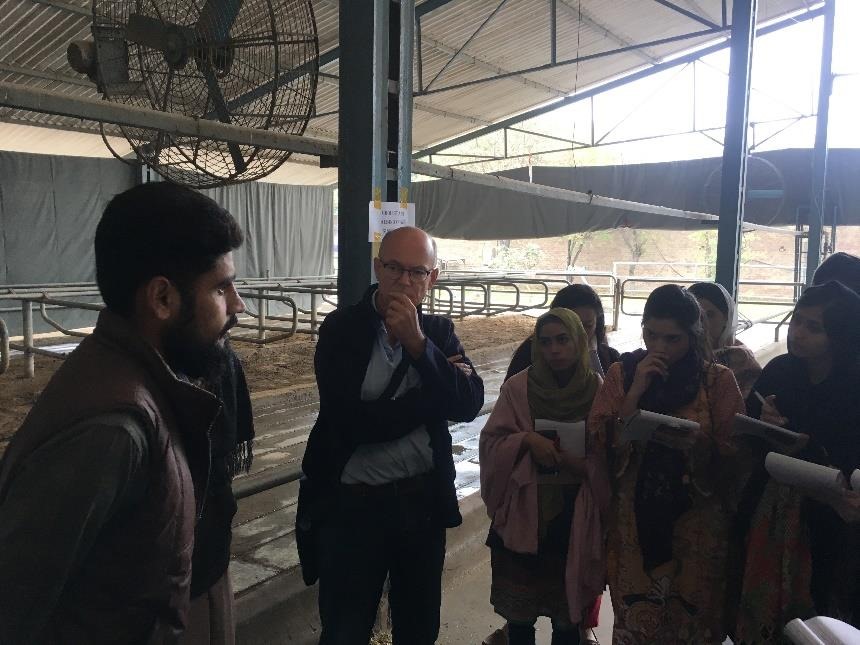
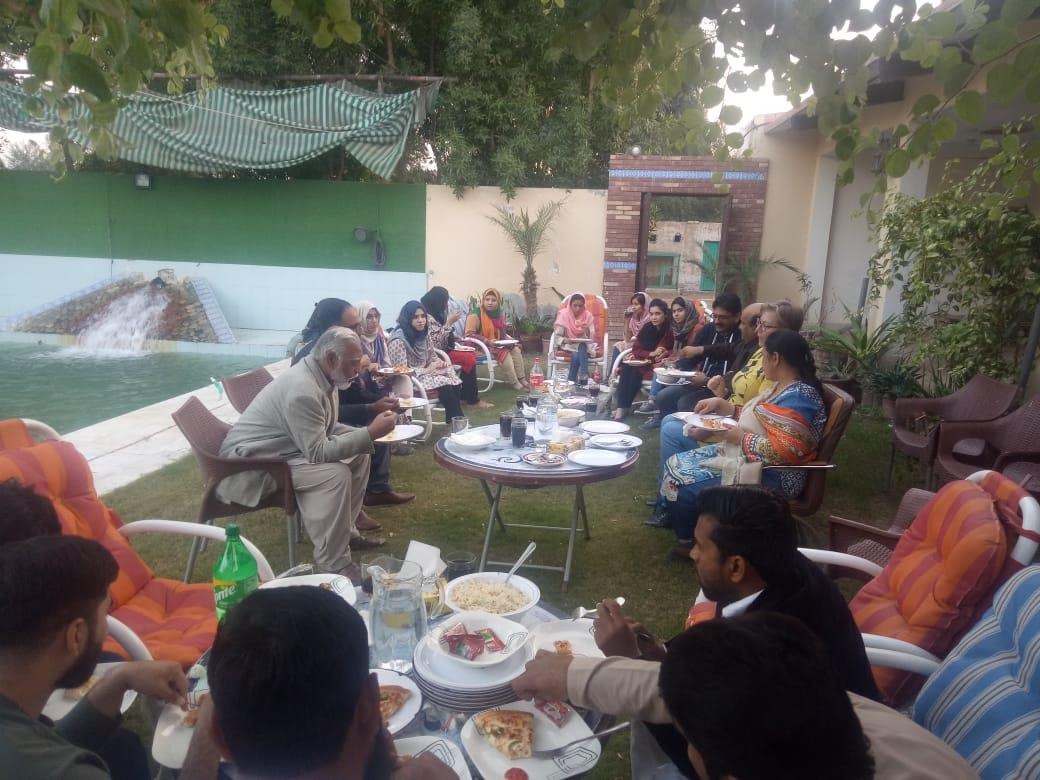
D. Follow-up program
During follow-up program an assignment to develop a farmer training program and training session will be finally discussed, implemented and assessed. All participants will also have to demonstrate their practical abilities during practical assessments. Participants which pass both assessments will receive a Course Certificate.
Each Module would take one week to implement. These modules will be organized as much as possible in real life situations (on farms, cattle camps, milk collection centers, milk processing plants, etc.) and will be practically oriented. Theory will be send to participants via email and it is expected that they will study this material before the actual start of the TMT. This will ensure that maximum time can be allocated to develop practical skills, work on assignments and make assessments of real life situations.
Between Course Module 3 and 4 there will be a gap of at least 6 weeks to allow participants to work on their assignments. Coaching of the participants will be done by experts from the Provider using the internet.
The above modules were worked out in concrete training programs, see annex 1. For the participant list see annex 2.
Results and remarks
The first 3 weeks of the scheduled training program were implemented according to the planning and no major problems were faced. The last week of the Training program had to be postponed as discussed earlier. Although initially there was still hope the pandemic would be brought under control swiftly this did not materialize. A decision was taken, in consultation with the local coordinators, to organize this last week training in the absence of the Netherlands consultant in order not to disturb the sequence of activities too much. At the end of the 3rd week of the training in December 2019 participants were given an assignment to develop a farmer training program in a step wise approach. Results of every step had to be processed in a small report and send to the Netherlands consultant, Mr. Tesselaar. Mr. Tesselaar judged the reports and gave his feedback. Once the farmer training programs were worked out each participant was supposed to deliver a practical training using his/ her fellow participants as trainees/ supposed to be farmers. If too much time would pass between developing these farmer training programs and the final assessment week it would have a negative impact on the Training program. This last assessment week/ trainee lessons were therefore conducted in July.
Local coordinators were coached by Mr. Tesselaar in the way to conduct this last week. Although not ideal the last week training went very well.
All training programs were evaluated and overall participants were very much satisfied with the way the training was conducted, its technical content and with the concrete results which can be used immediately in their work as extensionists.
P. Tesselaar
Senior Lecturer/ Consultant Aeres University
August 2020

Annex1: TMT program of 4 weeks
TAILOR MADE TRAINING (TMT) program “Value addition of milk to develop dairy processing capacity and rural entrepreneurship” For PAKISTAN LIONS YOUTH COUNCIL (PLYC) Staff
Topic: Dairy value chain workshop, Milk processing, Quality assurance, Marketing, Entrepreneurship, Gender, Farm economics, Dairy cattle nutrition, Training of trainers of PLYC extension workers
Workshop approach: Introductory sessions by trainers, Learning-by-doing, Group activities, Plenary presentations, Feedback sessions and Learning visits in the field
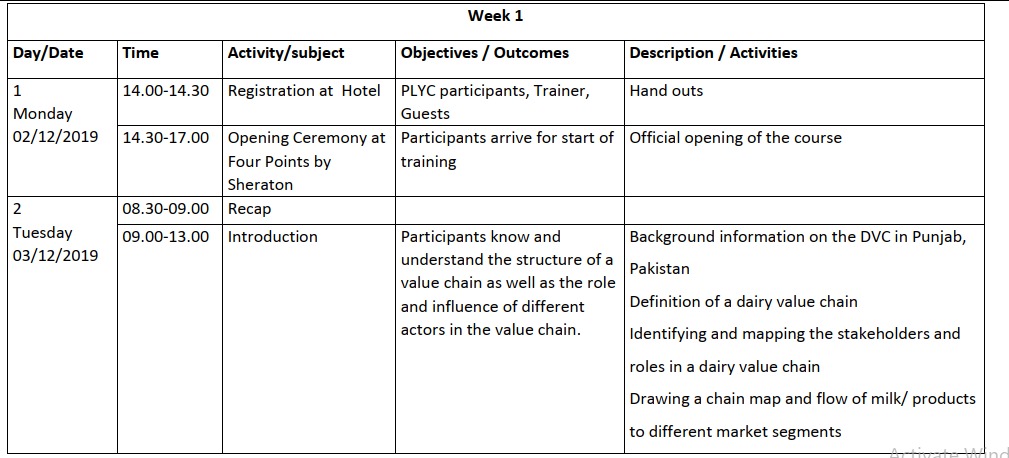
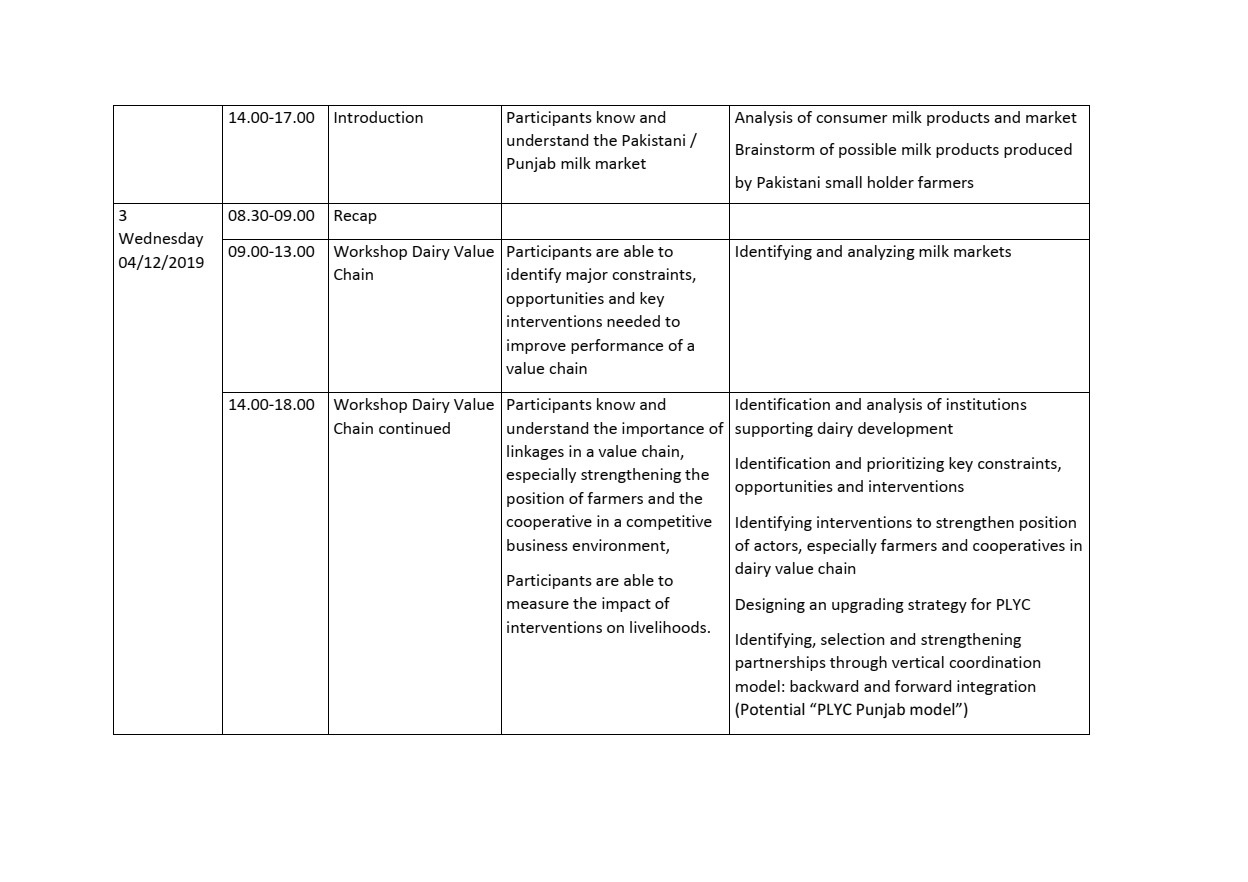
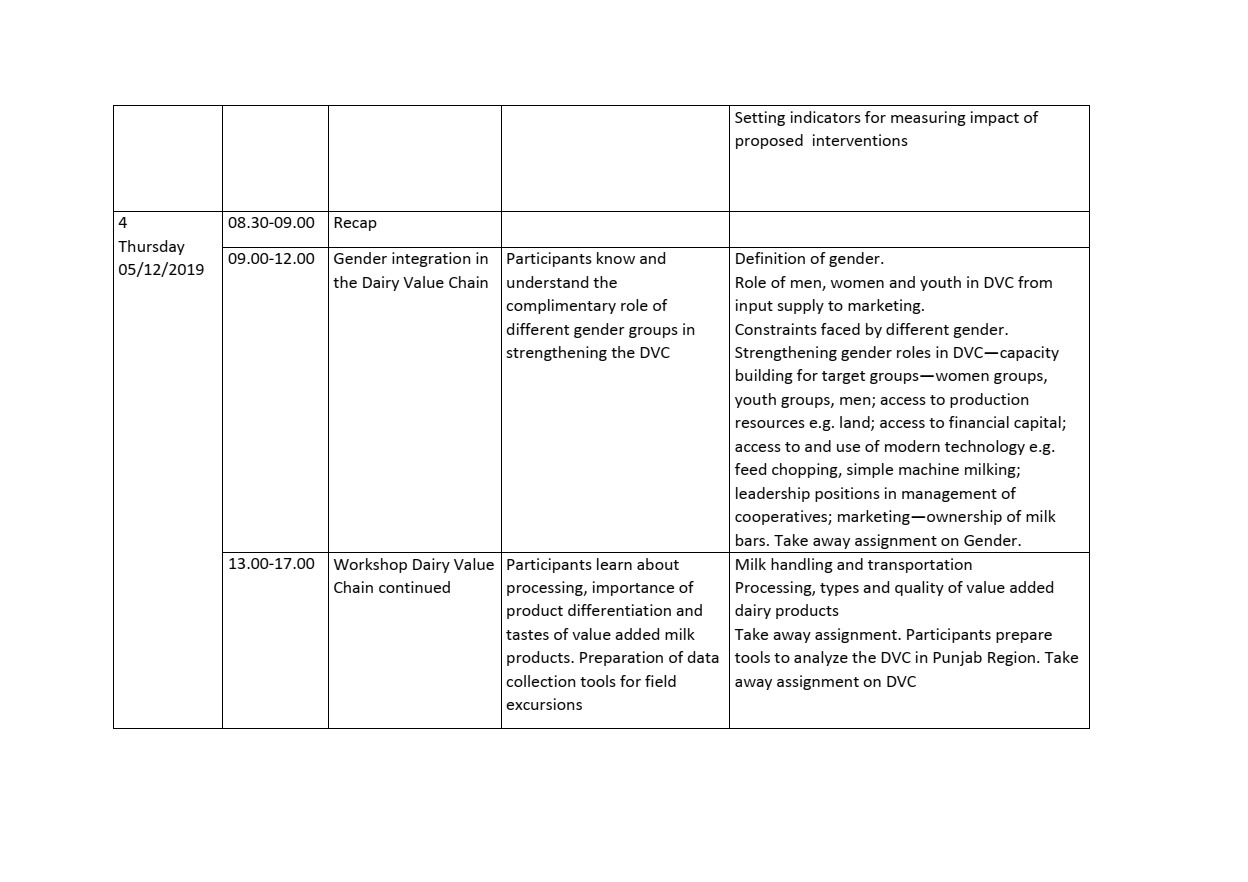
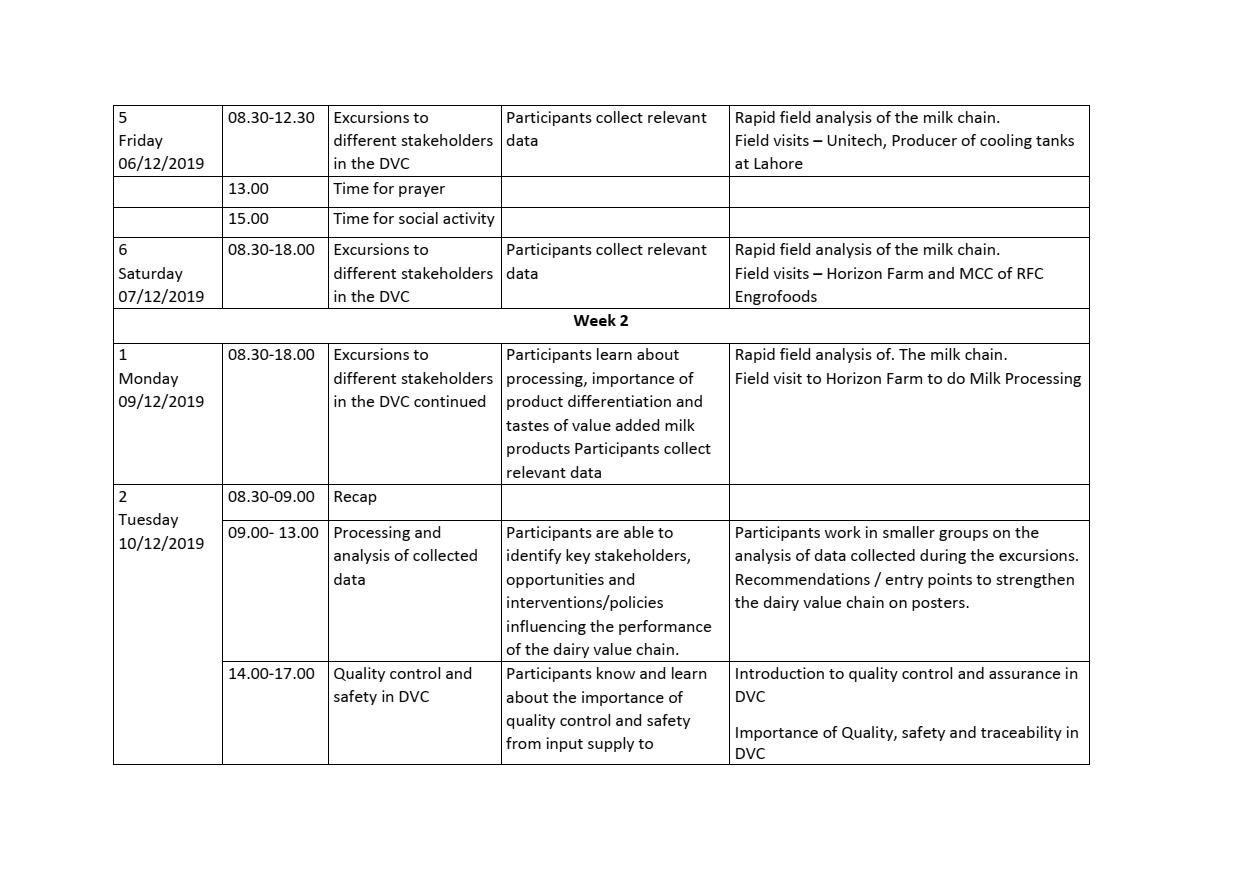
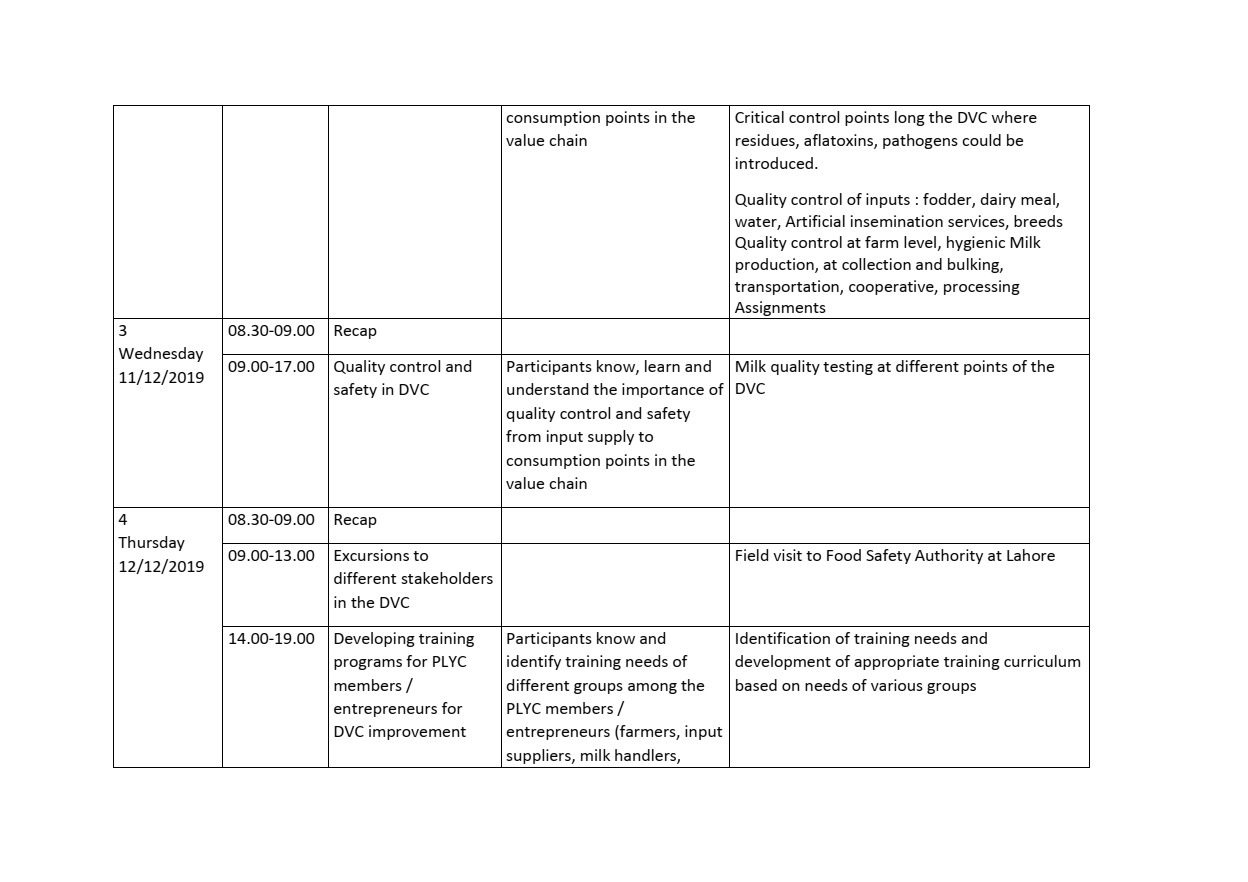
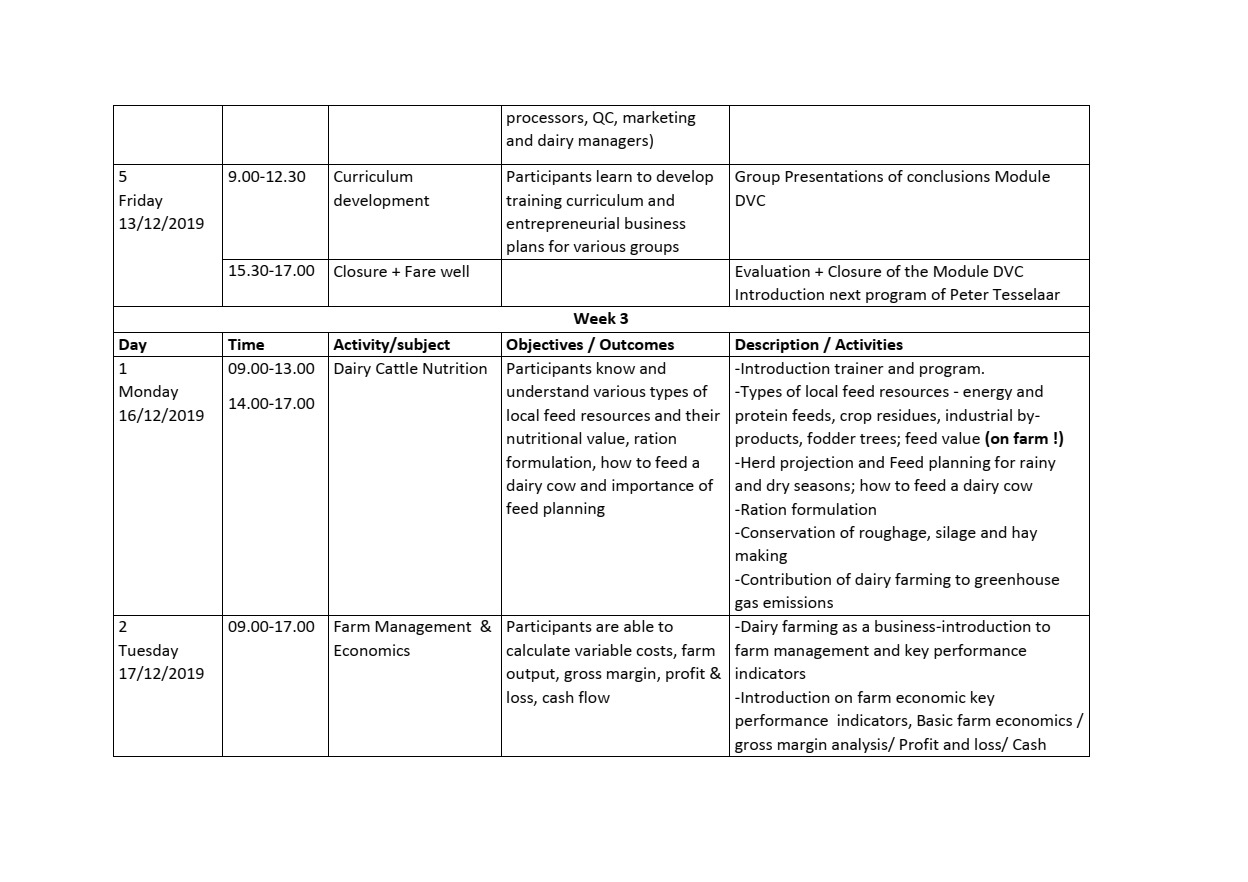
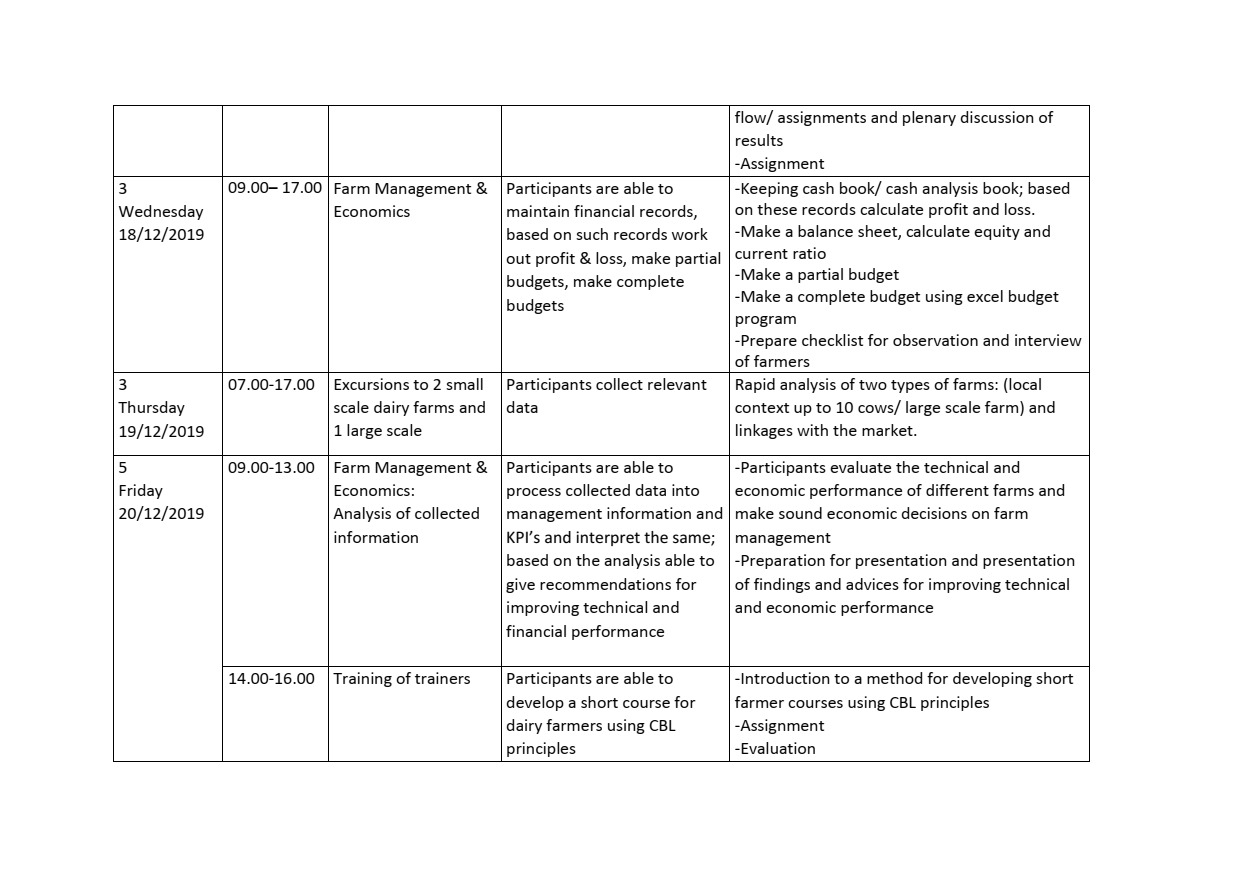
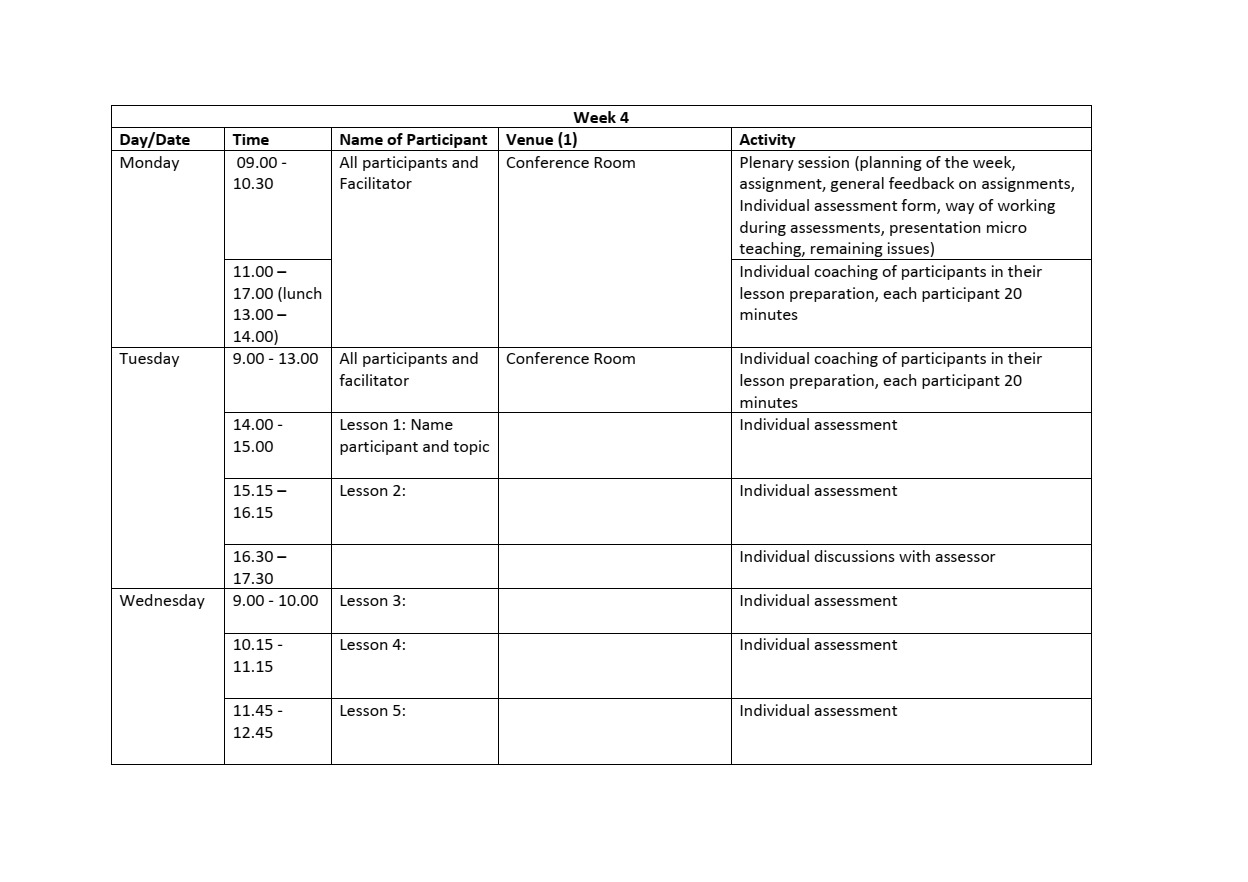
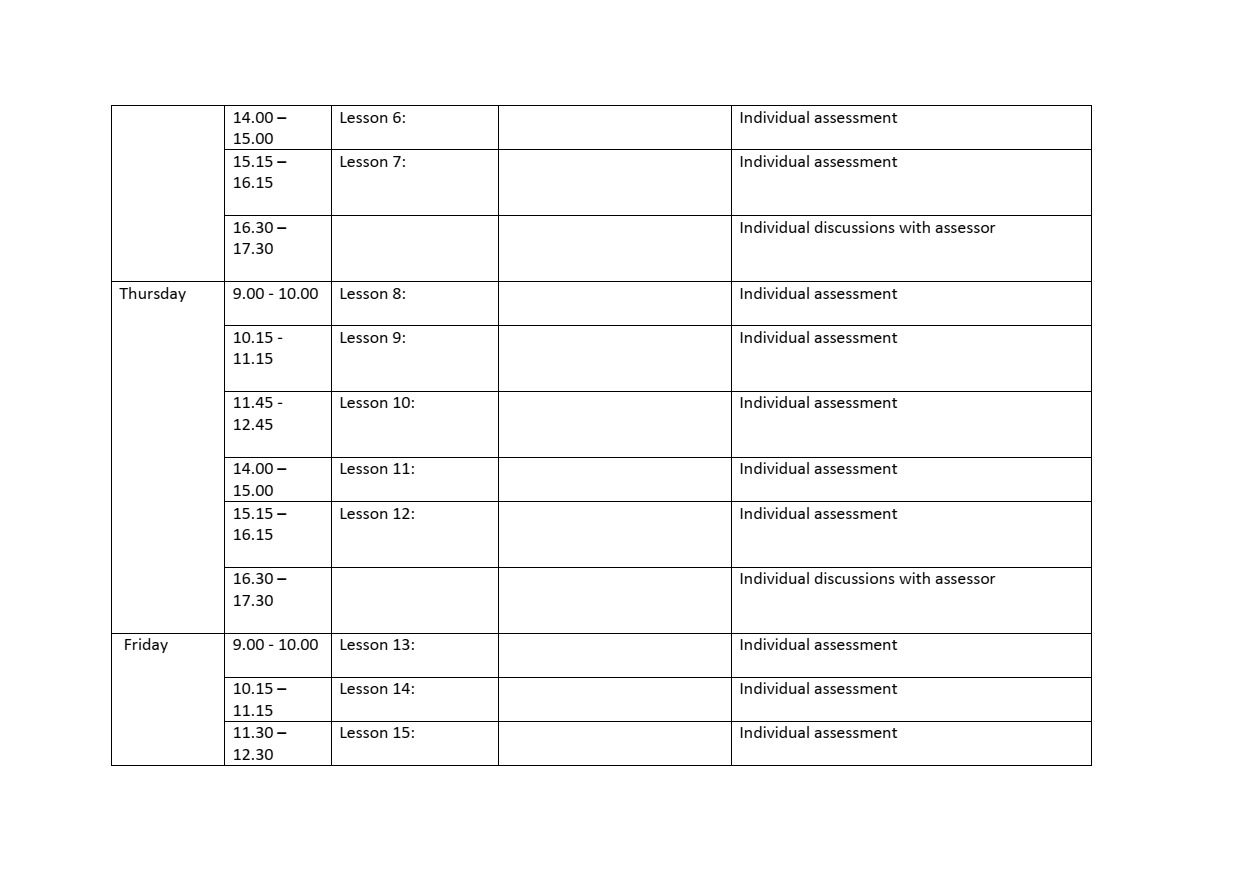

Annex 2: Participant List TMT Pakistan
